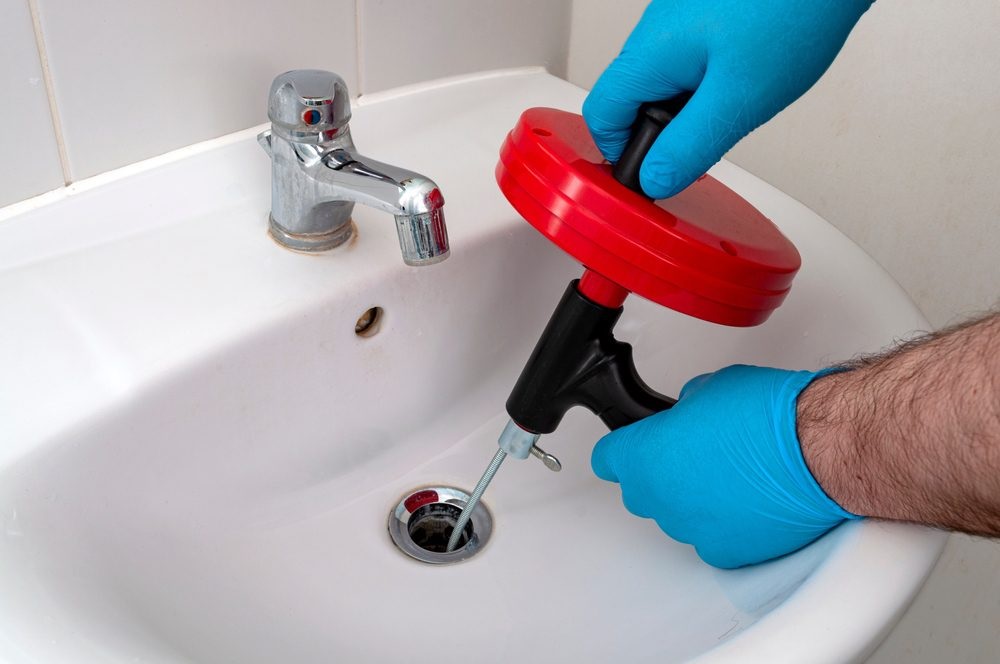You’ve got a clogged drain, haven’t you? It’s a common issue, but it’s not one you can’t handle. This guide will teach you everything you need to know about drain cleaning.
From identifying causes of clogs to choosing the right tools, you’ll learn how to clean your drains effectively. Plus, we’ll provide tips on preventing future clogs. And if all else fails, we’ll tell you when it’s time to call in the professionals.
Understanding the Common Causes of Drain Clogs
You’re not alone if you’re wondering what’s causing those pesky clogs in your drains.
Most commonly, it’s hair, grease, and food particles that block your pipes. When you’re washing or showering, hair can fall out and accumulate in the drain. Similarly, when cooking, oil and grease can harden in your pipes, creating stubborn blockages. And don’t forget those tiny food particles that slip down the kitchen sink! They might seem harmless, but they can create major clogs over time.
You might be surprised to find that even soap can contribute to the problem, as it can stick to the insides of pipes and trap other debris. Understanding these common culprits is the first step in preventing future clogs.
Essential Tools for Effective Drain Cleaning
In your toolbox, it’s crucial to have the right equipment for effective maintenance of your home’s plumbing system. A plunger is your first line of defense against clogs. It’s simple to use and can clear blockages in sinks, bathtubs, and toilets.
For tougher clogs, a plumber’s snake or hand auger is a must-have. It’s flexible and long enough to reach deep into the drain. You’ll also need a bucket for any water that may spill during the process. Finally, it’s a good idea to have a pair of rubber gloves on hand to protect your skin from dirty water and any chemicals you might use.
Properly equipped, you’re ready to tackle any drain cleaning job that comes your way.
Step-by-Step Guide to Cleaning Your Drains
Let’s dive into the step-by-step guide that’ll help you maintain a clear and functional home plumbing system. First, you’ll need to gather your tools, including a plunger, a plumber’s snake, and a hand auger. Don’t forget your gloves!
Start by trying the plunger. If that doesn’t work, you’ll have to use the plumber’s snake or the hand auger. Insert it into the drain and turn it to break up the clog. Remember to clean your tools after use to keep them in good condition. If the clog persists, it’s time to call a professional. Regular maintenance can prevent these issues. So, make sure you’re regularly cleaning your drains to avoid the hassle of clogs.
It’s easier than you think!
Preventive Measures: How to Avoid Drain Clogs
To keep the water running without interruption, there are certain precautions you can take, and they’re not as difficult as you might think.
First, don’t treat your drains like a garbage can. Avoid pouring fats, oils, or food scraps down there. They’ll harden and stick to the pipe walls, causing clogs.
Second, use drain guards. They’re cheap, simple to install, and they catch debris before it enters your pipes. You should also run hot water down the drains once a week. This helps to keep them clear of grease and soap buildup. Regularly maintaining your drains isn’t just about preventing blockages; it’s about extending the life of your pipes.
Professional Drain Cleaning versus DIY: When to Call the Experts
While you’ve been diligent with prevention, there comes a time when it’s best to call in professionals rather than attempting a DIY solution. Persistent clogs, slow drains, or foul odors could indicate a bigger issue at hand. You don’t want to risk damaging your pipes with improper tools or techniques, do you?
Professional drain cleaners have the experience, knowledge, and specialized equipment to handle any drain issue. They’ll not only solve the existing problem but also provide insights into what caused it, helping you avoid future issues.
You may also like
-
Understanding the Factors That Influence Shipping Container Sales Prices
-
How to Make a Home That Works Harder Than You Do
-
Why Hiring Local Matters: The Benefits of Choosing Bathroom Remodeling Companies Near Macomb
-
Post-Renovation Cleaning Singapore: A Complete Guide
-
The Custom Solution: Tailored Seating and Adjustable Furniture for Non-Standard Deck Shapes

